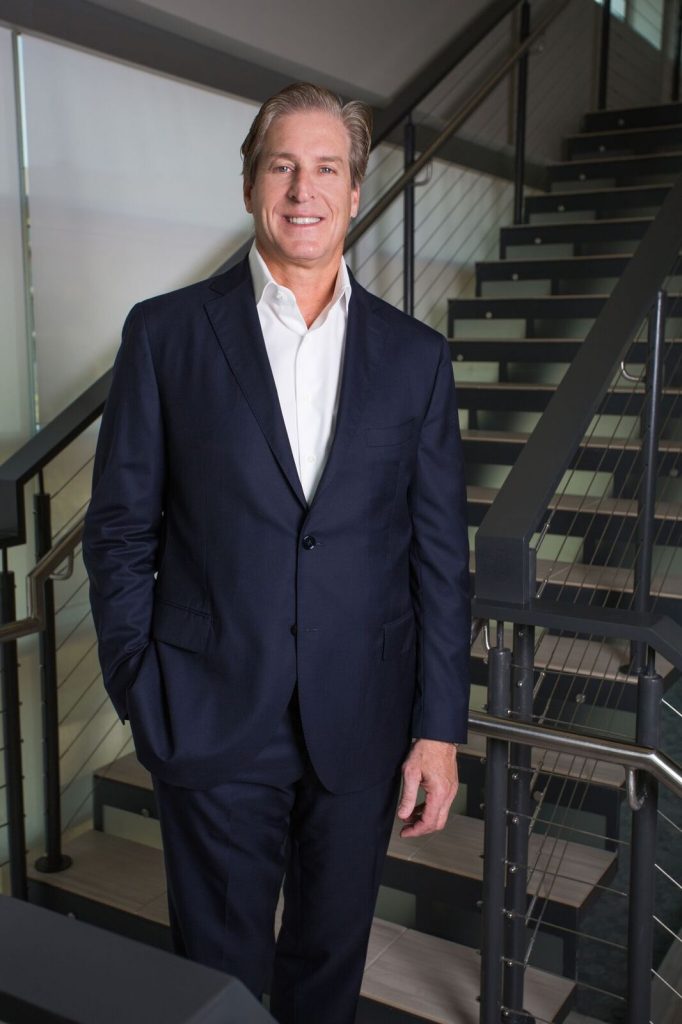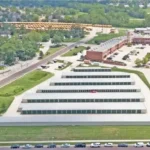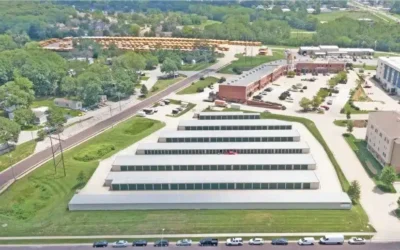A newly formed joint venture is targeting urban infill development in Los Angeles and Northern California, and it’s looking to take risks.
Miami City Self Storage (MCSS) – a developer of urban infill self-storage facilities – and real estate investment firm Cypress Equity Investments (CEI) have teamed up to create Pacific Storage Partners.
MCSS Partner Jay Massirman told Sparefoot Storage Beat his company was “maxed out” in terms of its developments in its home market of South Florida. The developer has more than 12 facilities completed or under development in the region.
“We’re trying to keep to our completely urban infill development strategy,” he said. “California was the next logical place, but we just weren’t sure how we were going to enter that market.”

Massirman of MCSS has found partners to take his storage development plans to the West Coast.
Partnering up
Massirman built on a long-term relationship with one of CEI’s executives and the two groups ultimately decided to work together to build self-storage in the Golden State.
“We look for strategic partners in new markets where there’s a lot of local complexities when it comes to relationships, and political climate,” he said. “California is known for its zoning challenges. And we’re focused most on markets that have low square footage of self-storage per capita.”
The joint venture is under contract on two sites, with a combined estimated $60 million in construction costs.
First of many
One of those sites is in Inglewood, CA, where Pacific Storage is proposing to build a six-story, 158,000-square-foot self-storage facility, according to Mike Diacos, director of acquisitions for Pacific Storage. The West Hyde Park Boulevard project is located less than two miles from Hollywood Park, the site of the new 70,000-seat Los Angeles Stadium that will be home to both the Los Angeles Chargers and Los Angeles Rams and serve as the opening and closing ceremony venue during the 2028 Summer Olympics.
The Inglewood project underscores Pacific’s plan to target high-traffic areas. The site is situated along the 405 Freeway and is located near a new Metro rail station.
Construction is slated to begin during the first quarter of 2019, with completion slated for mid-2020. Inglewood Self-Storage LLC is the development entity for the project, which is being financed by a $28.7 million investment from Jernigan Capital Inc.
On the horizon
In general, Pacific Storage Partners is targeting markets with the highest rent profiles and rent growths considering land is “so expensive” in California. Cities like San Francisco are not as appealing, however, because of a moratorium on development and sky-high land prices.
In general, getting entitled to build self-storage in California is not easy, the pair said.
“You just have to get the right combination of density and pricing and rents and demand,” Massirman said.
Pacific Storage is also under contract on a site in San Fernando Valley where it is proposing to build a three-story, 158,000-square-foot climate-controlled self-storage facility.
“It’s an area we really like where there’s rent growth and lots of multifamily in a high-density area,” Diacos said. “It’s exactly what we’re looking for in a project and we’re very bullish on that area.”
Overall, the joint venture is aiming to develop four to five self-storage facilities a year but recognizes that California is “tough” from an entitlement standpoint.
“A lot of cities are unfavorable to self-storage or the development standards are unfavorable to generate the density we’d like,” Diacos said. “We understand it takes a bit more effort in the state.”
Breaking ground
But those high barriers to entry are exactly what appealed to both companies.
“The impediment to development in California is high but at the end of the day, if you can get a project off the ground, you will likely see dividends because there’s very little competition – especially where population density is high,” Massirman said. “We might venture for more expensive, difficult-to-entitle sites that we have to take significant risk on sometimes to get entitled.”
The company is optimistic regarding opportunities in the state.
“I don’t see a lot of entitlements in the pipeline in many of our target markets,” Diacos said. “So we’re not seeing there’s going to be a lot under construction in the next three to five years.”
Pacific Storage is looking for sites where it can build more density, and it’s pursuing them “aggressively,” Diacos said.
“We’re always wanting to cooperate with brokers that can bring us a deal,” he said. “We’re a sophisticated team that can react quickly, and we’re not scared of a hairy deal. We’re in the market to buy land and process entitlements.”







